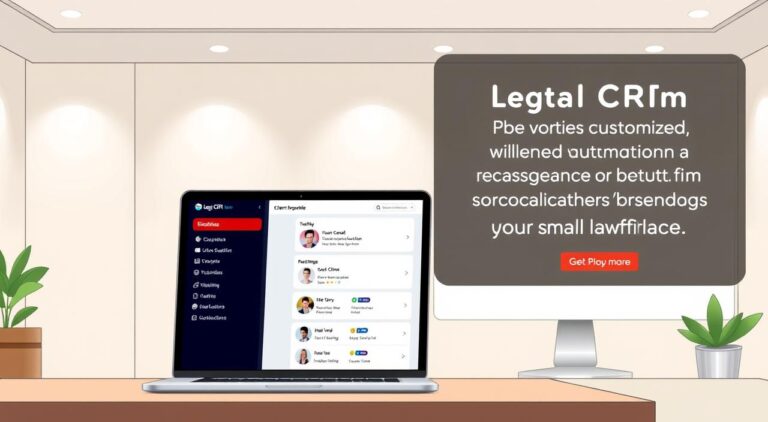Legal Research AI Tools Compared for US Lawyers
The legal landscape is rapidly evolving with AI technology transforming how lawyers conduct research, analyze cases, and review documents.
As AI adoption in law has jumped from 19% in 2023 to 79% in 2025, it’s clear that AI tools are becoming essential for legal professionals. These tools can handle document drafting, contract review, and case predictions, allowing attorneys to focus on high-value work.
This comprehensive comparison will examine the most effective AI solutions specifically designed for US lawyers, helping legal professionals make informed decisions about which tools best fit their practice needs.
Key Takeaways
- Top AI tools for legal research and document review
- How AI can improve accuracy and reduce time spent on routine tasks
- Security, compliance, and ethical considerations for AI tools
- Best AI solutions for different types of legal practices and specializations
- Features and value comparison of leading AI tools for lawyers
The Transformation of Legal Research Through AI
AI is changing the landscape of legal research, making it faster and more efficient. Traditional legal research methods often lack the speed and adaptability required to keep up with the demands of modern legal practice.
AI-powered tools are revolutionizing the field by streamlining research, ensuring accuracy, and optimizing decision-making. This enables legal teams to maintain a competitive edge.
- The legal industry has witnessed a paradigm shift as AI technology revolutionizes traditional research methodologies.
- Modern AI tools process thousands of legal documents simultaneously, identifying patterns and relevant precedents.
- The integration of natural language processing delivers more accurate and relevant results.
Law firms adopting AI research tools report significant improvements in efficiency, with some seeing up to 70% reduction in time spent on routine research tasks. This transformation is particularly valuable for US lawyers navigating complex federal and state legal systems.
Legal Research AI Tools Compared for US Lawyers
US lawyers now have access to a wide array of AI legal tools that streamline processes, boost productivity, and cut costs. The legal industry has witnessed a significant transformation with the integration of AI technology in legal research, offering innovative solutions for law firms.
The market for legal research AI tools has expanded dramatically, with solutions available for every aspect of legal practice, from document review to predictive case outcome analysis. Leading platforms such as Clio Duo, CoCounsel, and LEGALFLY have emerged as comprehensive solutions, integrating multiple AI capabilities within a single ecosystem.
- Leading platforms like Clio Duo, CoCounsel, and LEGALFLY offer integrated AI solutions.
- Specialized tools such as Diligen and LawGeex provide deep functionality for contract analysis.
- Case analysis tools like CaseText and Westlaw have incorporated advanced AI features.
- Effective AI platforms offer seamless integration with existing law firm workflows.
When comparing these AI tools, US lawyers should consider factors such as practice area specialization, firm size, security protocols, and integration capabilities. This ensures that the chosen solution matches the specific needs of the law firm, maximizing return on investment.
How AI is Revolutionizing Legal Research in 2025
AI’s impact on legal research in 2025 is revolutionary, introducing capabilities that were previously unimaginable. The legal industry has witnessed a significant transformation with the integration of AI tools that enhance the speed, accuracy, and analytical capabilities of legal research.
Automating Document Review and Discovery
AI can process thousands of documents simultaneously, uncovering hidden connections and compliance issues. This automation significantly reduces the time spent on document review and discovery, allowing legal professionals to focus on higher-value tasks.
Enhanced Analysis of Case Law and Statutes
By utilizing natural language processing (NLP), AI can analyze vast databases of case law and statutes in seconds, providing contextually accurate results. This capability accelerates legal research, saving hours of manual work and enhancing the quality of legal arguments.
Predictive Analytics for Case Outcomes
AI uses historical data to predict case outcomes, assess risks, and offer actionable insights. This enables attorneys to quickly prepare arguments, evaluate a case’s likelihood of success, and tailor strategies based on data-driven predictions.
As highlighted by a recent study, “AI is not just a tool, it’s a game-changer in the legal profession, enabling lawyers to make more informed decisions.” This underscores the significant impact of AI on the future of legal research.
Key Benefits of AI Tools for Law Firms
The integration of AI tools in law firms is transforming the legal landscape. By automating routine and repetitive tasks, AI technology significantly enhances the operational efficiency of a firm, allowing legal professionals to focus on higher-value work.
Increased Productivity and Time Savings
AI tools can analyze and process vast amounts of information in seconds, saving time and boosting productivity. This enables law firms to reclaim up to 32.5 workdays per year previously spent on routine research and document review tasks.
Higher Quality Work and Consistency
AI produces work that is consistent and thorough, reducing the likelihood of human error. This results in higher quality work and improved client satisfaction.
Improved Client Experiences
By freeing up time from low-level tasks, lawyers can focus on legal work, leading to better client experiences and more effective legal services. This, in turn, can attract more clients and drive business growth.
Comprehensive Legal AI Platforms
Comprehensive Legal AI Platforms represent the pinnacle of innovation in legal technology, offering integrated solutions that address multiple aspects of legal practice within a single ecosystem. These advanced platforms are transforming the way legal professionals work, providing end-to-end functionality that spans research, document analysis, practice management, and client communication.
Clio Duo
Overview
Clio Duo is a cutting-edge AI legal platform powered by Microsoft Azure OpenAI GPT-4 technology, integrated directly into Clio’s practice management system. It delivers precise, contextually relevant insights by utilizing a firm’s existing data.
Key Features
Seamless integration with Clio’s practice management system, contextually relevant insights, and enhanced data security.
Pros
Tailored results that address specific needs, transforming the way law firms work.
Cons
Limited to Clio’s ecosystem, potentially restricting its appeal to firms using other practice management systems.
CoCounsel
Overview
CoCounsel is an AI legal assistant trained specifically for legal applications, powered by OpenAI. It offers greater reliability and relevance than general-purpose AI tools.
Key Features
Knowledgeable, reliable, and secure, supporting the practice of law with robust capabilities.
Pros
Specifically trained for legal applications, enhancing its utility for law firms.
Cons
Dependence on OpenAI’s capabilities and potential limitations in customization.
LEGALFLY
Overview
LEGALFLY is a leading AI solution for legal research, streamlining workflows and accelerating compliance. It is trusted by leading firms worldwide for its powerful research features and robust data protection.
Key Features
Multi-jurisdictional validation, document review acceleration, and automatic anonymization of sensitive information.
Pros
Robust data protection through SOC 2 Type II and ISO 27001 certifications.
Cons
Potential complexity in implementation and training for optimal use.
Document Review and Analysis Tools
Document review and analysis tools are transforming the legal industry by significantly reducing the time spent on contract review and due diligence processes. These AI-powered tools enable legal professionals to efficiently analyze large document sets, identify key information, and streamline their workflows.
Diligen

Overview
Diligen is a leader in contract analysis, utilizing machine learning to quickly identify specific clauses, provisions, and changes across large document sets.
Key Features
Machine learning-powered analysis enables due diligence and contract review with high accuracy and speed.
Pros
Efficient contract review and accurate identification of key clauses are significant advantages.
Cons
Some users may experience a learning curve when adapting to Diligen’s advanced features.
LawGeex
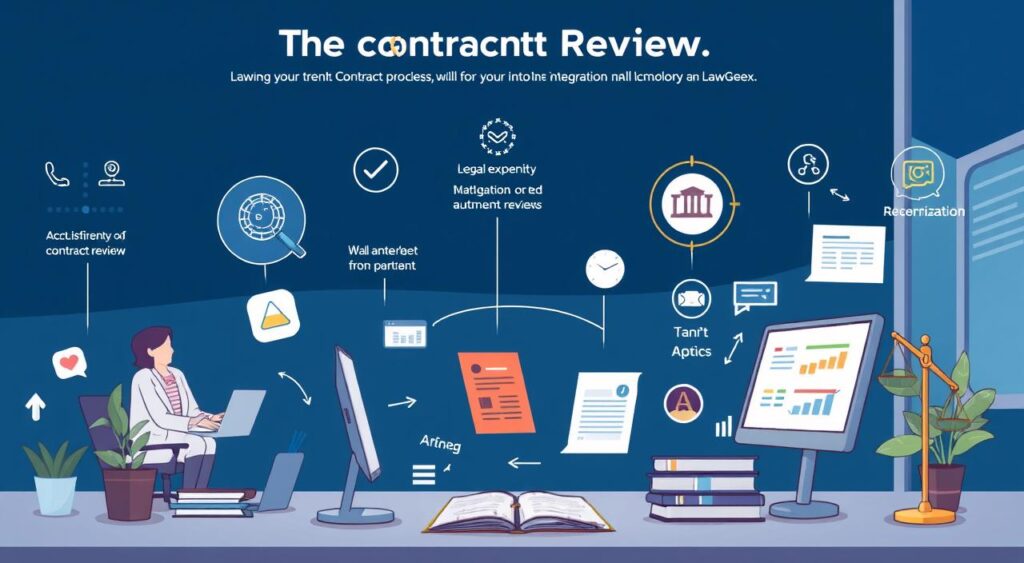
Overview
LawGeex automates contract review by comparing documents against established playbooks and highlighting potential risks.
Key Features
AI-driven contract review provides clear and consistent recommendations.
Pros
Streamlined contract review and risk identification are key benefits.
Cons
Dependence on the quality of the playbooks used for comparison is a potential drawback.
Relativity

Overview
Relativity is a powerful eDiscovery platform that uses AI for document review, privilege checks, and case strategy tools.
Key Features
AI-powered review and robust security features make it a favorite among government agencies.
Pros
Highly effective for large cases and enterprise-grade security are significant advantages.
Cons
The complexity of the platform may require specialized training.
Legal Research and Case Analysis Tools
AI-powered legal research and case analysis tools are redefining the legal profession. These advanced tools have transformed the way lawyers conduct research and analyze cases, making the process more efficient and accurate.
CaseText

Overview
CaseText is an affordable AI legal research tool designed for legal teams, particularly small to mid-sized firms. It leverages natural language processing to deliver precise and relevant results.
Key Features
Natural Language Processing: Enables more accurate search results. Relevant Precedents: Identifies relevant case law and statutes.
Pros
Affordable: Ideal for smaller firms. Accurate Results: Delivers precise search results.
Cons
Lacks predictive analytics features available in some competing tools.
Westlaw

Overview
Westlaw, from Thomson Reuters, is a comprehensive online legal research service. It provides access to a vast database of legal resources and utilizes AI to enhance search results.
Key Features
Vast Database: Includes over 40,000 legal resources. AI-Enhanced Search: Provides direct answers to complex legal questions with links to sources.
Pros
Comprehensive: Offers a wide range of legal resources. Accurate: AI provides precise answers to legal queries.
Cons
Can be costly, targeting larger practices.
Lex Machina

Overview
Lex Machina specializes in litigation analytics, providing insights into case trends, judicial tendencies, and opposing counsel strategies.
Key Features
Litigation Analytics: Offers data-driven insights into case trends and courtroom dynamics. Predictive Analytics: Helps in predicting case outcomes.
Pros
Robust Analytics: Provides comprehensive litigation insights. Strategic Planning: Aids in litigation planning and outcome prediction.
Cons
Primarily focused on litigation, may not be suitable for transactional legal work.
Contract Management and Analysis Tools
Law firms are increasingly adopting AI-powered contract management tools to streamline their operations. These tools transform static documents into interactive resources, delivering actionable insights and enhancing collaboration among legal teams.
Robin AI
Robin AI pioneers the concept of “conversational documents,” enabling attorneys to ask questions and receive instant, contextually relevant answers from contracts and case files.
Overview
Robin AI makes contracts and case files searchable and conversational, allowing attorneys to interact with documents in a more intuitive way.
Key Features
Conversational Interface: Ask questions and get instant answers from documents. Collaboration: Multiple attorneys can interact with documents in a single secure thread.
Pros
Enhanced Collaboration: Preserves institutional knowledge and reduces redundant analysis. Time Savings: Instant answers from documents save significant time.
Cons
Dependence on AI accuracy; potential learning curve for some users.

Ivo
Ivo is a full-on AI contract intelligence platform that not only reviews documents but also learns from a firm’s negotiation history to suggest edits and flag risky provisions.
Overview
Ivo speeds up contract review, flags risky provisions, and suggests edits based on past negotiations, making it a powerful tool for transactional legal practices.
Key Features
AI Contract Intelligence: Learns from negotiation history to suggest edits. Risk Identification: Flags provisions that deviate from preferred language.
Pros
Improved Accuracy: Dramatically improves accuracy in identifying problematic clauses. Integration: Strong Microsoft Word integration for seamless workflow.
Cons
Potential complexity in setup; reliance on historical data quality.
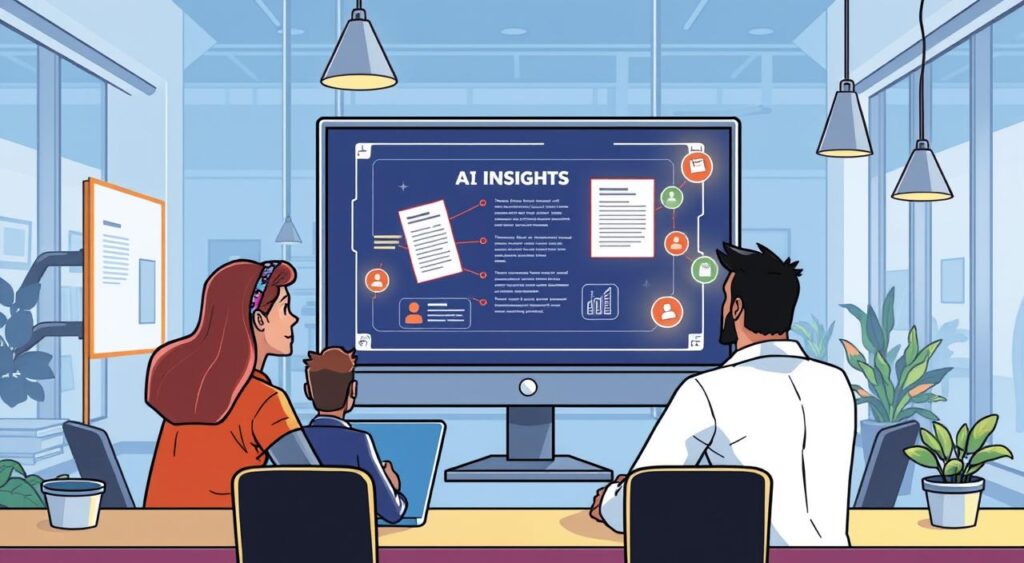
Specialized Legal AI Tools
The rise of specialized legal AI tools is revolutionizing legal practices by providing deep functionality tailored to specific areas of law. These tools offer law firms the opportunity to enhance their services and gain a competitive advantage.
Blue J Legal
Blue J Legal is a premier AI solution for tax law and employment scenarios, offering predictive analytics that help forecast legal outcomes.
Overview
Blue J Legal is designed for law firms with specialized practices, particularly those dealing with complex tax law and employment cases.
Key Features
The platform’s predictive analytics and scenario analysis capabilities enable attorneys to model different approaches and outcomes, providing a data-driven foundation for strategic decision-making.
Pros
Enhanced predictive capabilities for tax law and employment scenarios, allowing for more informed decision-making.
Cons
While highly specialized, Blue J Legal’s focus on specific areas of law may limit its applicability to broader legal practices.

Darrow.ai
Darrow.ai represents a revolutionary approach to case identification, using AI to analyze public data streams and identify potential legal matters before they become widely known.
Overview
Darrow.ai is an early-warning system that scans massive streams of public data to flag emerging legal matters, giving firms a significant competitive advantage.
Key Features
The platform’s AI-driven analysis enables law firms to identify potential cases early, particularly valuable for class action and mass tort practices.
Pros
Early case identification capabilities that can lead to significant new business opportunities.
Cons
The reliance on public data streams may lead to limitations in the accuracy or comprehensiveness of the insights provided.

AI-Powered Client Interaction Tools
Law firms are increasingly adopting AI-powered tools to enhance client communication and streamline their intake processes. These tools are transforming the client experience while reducing administrative burdens on law firms.
Smith.ai

Overview
Smith.ai offers a 24/7 AI-powered receptionist and live agent service that answers, screens, and schedules calls seamlessly. It handles intake, lead qualification, consultation booking, and CRM updates.
Key Features
24/7 Receptionist Service: Ensures no client call goes unanswered.
Lead Qualification: Automatically screens potential clients according to customized criteria.
Pros
Increased Efficiency: Streamlines front desk operations.
Improved Client Experience: Provides timely responses to client inquiries.
Cons
Dependence on technology; potential for misqualification of leads.
Gideon
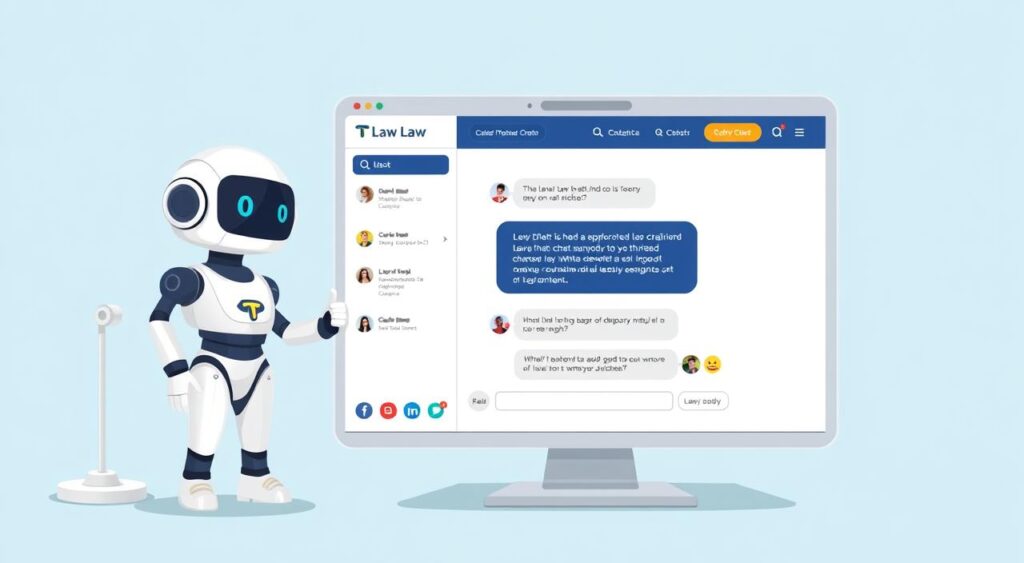
Overview
Gideon is a client intake and document automation tool that leverages AI for legal document creation and streamlines the intake process. It integrates with Clio and learns to answer prospect questions, qualifying leads effectively.
Key Features
Conversational AI: Replaces traditional intake forms with natural dialogue.
Integration with Clio: Seamlessly captures and organizes client information.
Pros
Enhanced Efficiency: Reduces friction in the intake process.
Improved Accuracy: Minimizes errors in client information gathering.
Cons
Potential for technical issues; learning curve for customization.
Both Smith.ai and Gideon offer significant improvements in conversion rates, with firms reporting 30-40% increases in qualified consultations booked. Their seamless CRM integration capabilities eliminate data entry tasks, reducing administrative overhead.
E-Discovery and Litigation Support Tools
AI-driven e-discovery and litigation support tools are revolutionizing the way law firms handle complex cases. These tools have transformed the manual process of document review into a streamlined, efficient workflow.
Everlaw
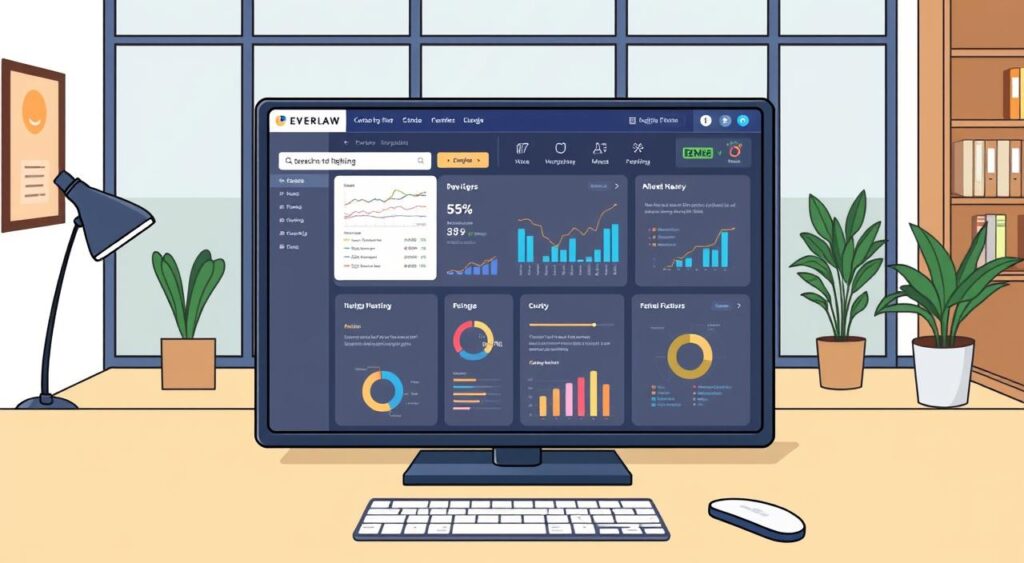
Overview
Everlaw is a cloud-native platform that simplifies the uploading, searching, and reviewing of massive document collections through AI-powered analysis. It is particularly valuable for legal service providers dealing with large volumes of data.
Key Features
Early Case Assessment tools that cut review time by up to 74% through AI-driven identification of relevant materials.
AI-powered analysis for efficient document review.
Pros
Reduces document review time significantly.
Enhances the accuracy of document analysis.
Cons
May require training for optimal use.
Bloomberg Law
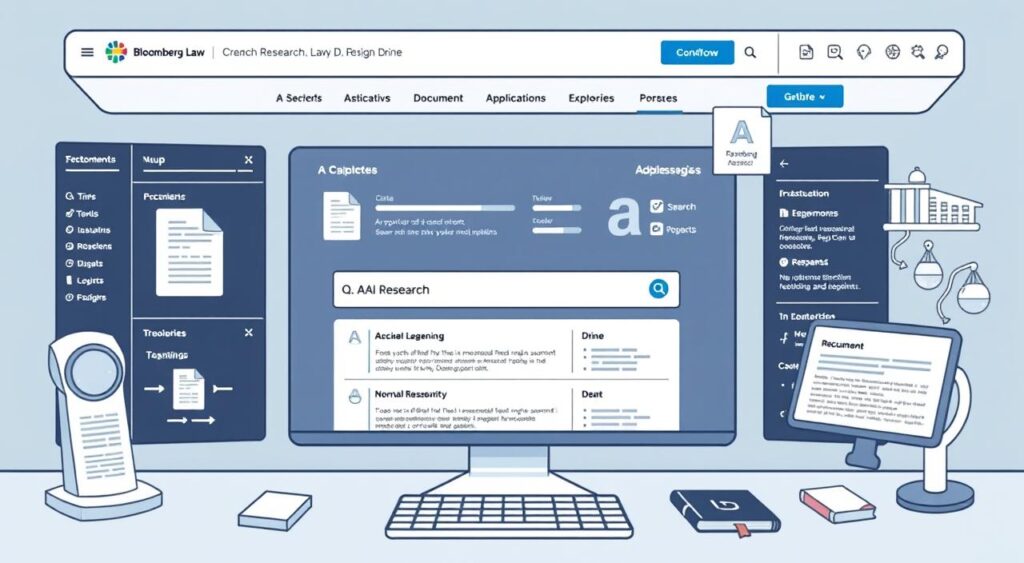
Overview
Bloomberg Law combines comprehensive legal content with powerful AI search capabilities, creating an integrated platform for research, analysis, and litigation support.
Key Features
AI-driven search for precise results.
Analytics capabilities that include trend analysis and outcome prediction.
Pros
Provides comprehensive legal content.
Offers advanced analytics for strategic insights.
Cons
May be overwhelming due to the vast amount of information available.
Both Everlaw and Bloomberg Law offer significant advantages for complex litigation matters, particularly in multi-party cases involving large document collections. Their robust security features make them suitable for government agencies and regulated industries.
General AI Tools Adapted for Legal Use
General AI tools are being increasingly adapted for legal applications, offering flexible functionality that complements specialized legal platforms while providing broader capabilities. These tools are revolutionizing the legal landscape by enabling law firms to streamline their work and improve efficiency.
ChatGPT
ChatGPT for legal professionals is a game-changer, allowing attorneys to leverage AI for a variety of tasks.
Overview
ChatGPT is an AI-powered chatbot from OpenAI that responds to open-ended text queries with paragraphs of text-written answers. It was trained through reinforcement learning from human feedback.

Key Features
ChatGPT can be used by lawyers to create legal documents, conduct legal research, and brainstorm legal arguments.
Pros
The versatility of ChatGPT makes it particularly valuable for smaller firms that cannot invest in multiple specialized tools.
Cons
While innovative and useful, generative AI tools like ChatGPT can “hallucinate,” making up false information in their responses.
Auto-GPT
Auto-GPT for legal research represents the next evolution in autonomous AI assistance.
Overview
Auto-GPT is an experimental open-source attempt to make GPT-4 fully autonomous, using OpenAI’s text-generating AI models paired with a companion bot.
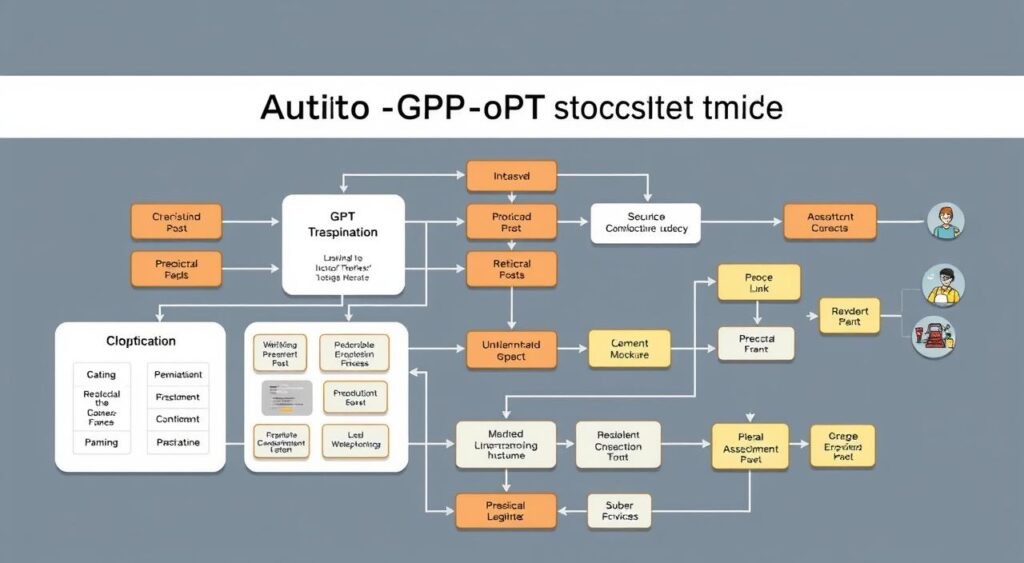
Key Features
Auto-GPT is capable of breaking down complex legal tasks into steps and executing them with minimal human intervention.
Pros
This technology has the potential to significantly reduce the workload for legal professionals.
Cons
Like ChatGPT, Auto-GPT requires careful oversight from legal professionals, as it may occasionally generate inaccurate or “hallucinated” information.
Security and Compliance Considerations for Legal AI
As law firms increasingly adopt AI tools, the importance of robust security and compliance protocols cannot be overstated. Handling sensitive client data demands absolute vigilance to prevent data breaches that can lead to regulatory penalties and reputational damage.
Key considerations include:
- Implementing multiple layers of protection, such as data encryption and role-based access controls.
- Data anonymization capabilities to remove personally identifiable information before AI processing.
- Compliance certifications like SOC 2 Type II, ISO 27001, and GDPR to verify security standards.
- Evaluating data storage location and sovereignty issues, particularly for international matters.
By prioritizing these security and compliance considerations, law firms can ensure the integrity of client data and maintain trust in their AI-driven legal practices.
Ethical Considerations When Using AI in Legal Practice
The use of AI in legal practice raises significant ethical questions that require careful examination. As lawyers increasingly rely on AI tools, they must navigate issues of transparency, accountability, and bias mitigation.
- Attorneys must understand the capabilities and limitations of AI tools, including potential biases in training data.
- Transparency with clients about AI use has become an ethical imperative, requiring clear disclosure of when and how AI tools are utilized.
- The “black box” problem, where AI systems provide outputs without clear explanations, creates tension with legal professionals’ need to understand and explain their conclusions.
Maintaining appropriate human oversight remains essential, as attorneys cannot delegate their professional judgment or ethical responsibilities to AI systems. Bar associations are developing guidance for AI use, with the American Bar Association leading the establishment of ethical frameworks.

How to Choose the Right AI Tool for Your Law Firm
To maximize the benefits of AI in your law firm, it’s essential to adopt a systematic approach to selecting the right AI tool that meets your firm’s unique requirements.
When considering integrating an AI tool into your practice, it’s crucial to evaluate several key factors. First, security is paramount. As a lawyer, you handle highly confidential and sensitive client data, so you need to ensure that the AI tool you choose has stringent security protocols in place.
Next, identify the specific needs of your firm. While it can be exciting to explore the variety of new AI tools available, not every firm needs to implement every tool. Consider the user interface and ease of use, as an AI tool can be incredibly innovative, but if it’s too complex or difficult to navigate, it may not be the best fit.
- Selecting the right AI tool requires identifying specific pain points and workflow inefficiencies that technology could address.
- Practice area specialization is crucial, as tools designed for litigation support may not be suitable for transactional practices.
- Firm size and resource constraints play a significant role in tool selection, with solo practitioners benefiting from versatile platforms.
- Security protocols, including data encryption and access controls, must be rigorously evaluated.
By carefully considering these factors and evaluating AI tools based on your firm’s specific needs and workflows, you can make an informed decision that enhances your legal departments‘ efficiency and effectiveness.
Future Trends in Legal Research AI Technology
Legal research AI technology is on the cusp of a revolution, transforming how lawyers work. AI ensures legal teams stay informed with live updates on rulings, amendments, and regulatory changes.
- Multimodal AI capabilities will enable comprehensive research across diverse legal materials.
- Predictive analytics will offer strategic insights about case outcomes, timing, and argument framing.
- Personalized legal research assistants will deliver tailored results aligning with individual attorney preferences.
These advancements will further transform legal practice, making it more efficient and effective. AI technology will continue to shape the future of legal research.

Conclusion
AI is transforming the legal landscape, enabling lawyers to focus on high-value tasks. By leveraging AI tools, law firms can enhance their practice, improving productivity and client satisfaction.
This technological shift is not just about automation; it’s about augmenting the capabilities of legal professionals to deliver better outcomes for their clients. As the legal industry continues to evolve, embracing AI will be crucial for law firms to remain competitive.



